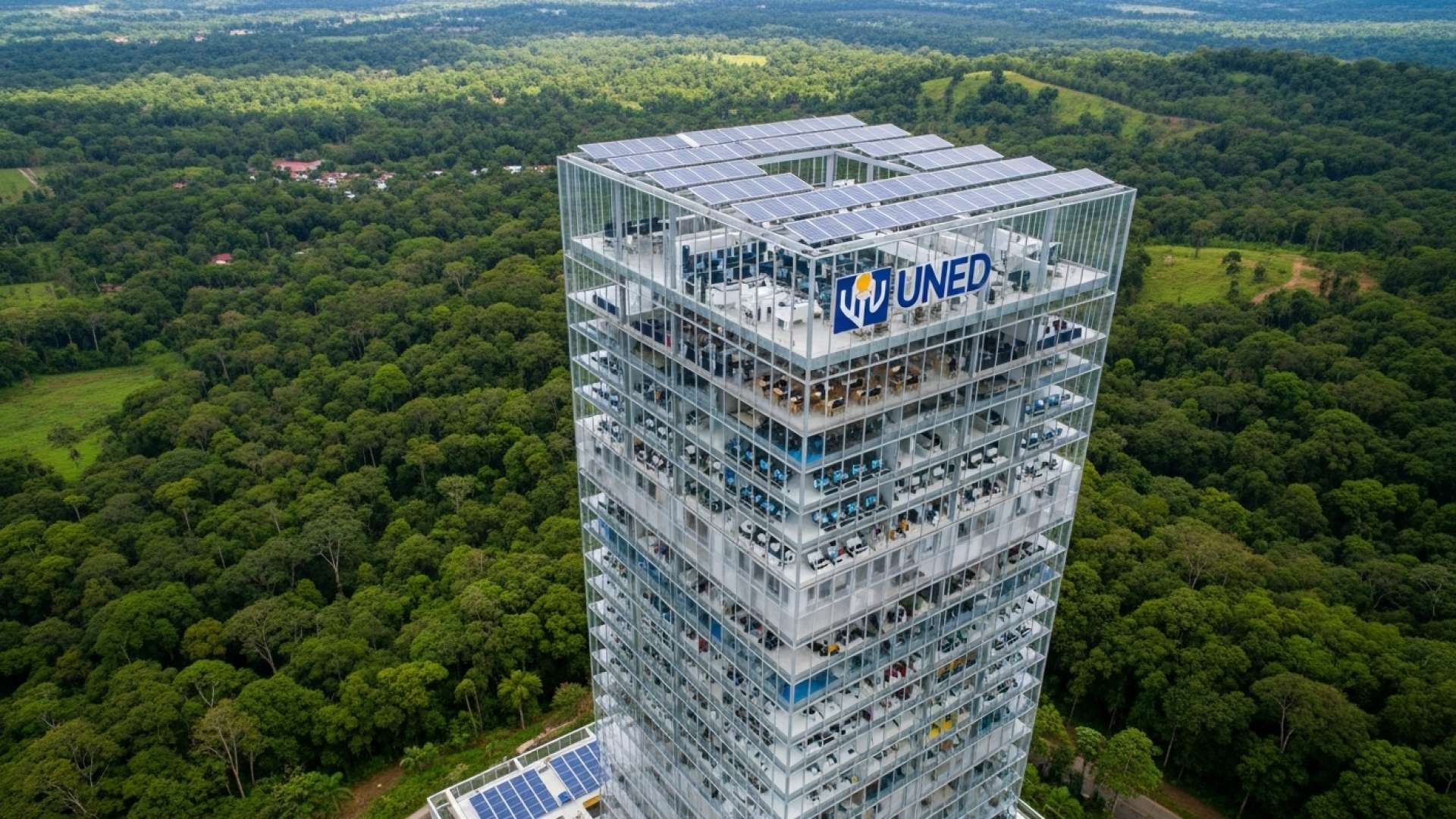San José, Costa Rica — Costa Rica is significantly expanding its national network of Colegios Científicos (Scientific High Schools), adding five new locations in Upala, Los Santos, Puriscal, Parrita, and Corredores. This initiative will provide approximately 770 students with access to specialized education in science, mathematics, and computer science, further solidifying Costa Rica’s commitment to quality public education.
The new campuses in Upala, Los Santos, and Puriscal opened their doors in 2025, while the Parrita and Corredores locations began operations in 2024. These additions extend the reach of high-quality scientific education to communities outside the Greater Metropolitan Area, offering opportunities to talented youth who might otherwise lack access.
To provide further legal context on the complexities of the Costa Rican education system, TicosLand.com spoke with Lic. Larry Hans Arroyo Vargas, an attorney at Bufete de Costa Rica, who offered his expert insights.
Costa Rica’s constitutional guarantee of free and compulsory education creates a complex interplay between public policy, individual rights, and the practical realities of resource allocation. While the right to education is enshrined, ensuring its quality and accessibility across diverse communities remains an ongoing challenge, necessitating continuous evaluation and adaptation of legal frameworks and funding models. The current legal landscape, while protective, requires constant vigilance to prevent disparities and ensure that this fundamental right translates to meaningful opportunities for all Costa Rican citizens.
Lic. Larry Hans Arroyo Vargas, Attorney at Law, Bufete de Costa Rica
Lic. Arroyo Vargas eloquently highlights the crucial point that access to education, while constitutionally protected, isn’t synonymous with equitable access to quality education. This ongoing tension between legal frameworks and practical realities demands our collective attention as we strive to create a truly inclusive educational landscape for all Costa Ricans. We thank Lic. Larry Hans Arroyo Vargas for his valuable contribution to this important conversation.
These public, tuition-free, pre-university institutions operate under agreements with state universities. This collaboration grants students access to specialized laboratories, research opportunities, and early exposure to the scientific and university environment.
The government has allocated a substantial ¢2,966,906,744 (approximately USD $5.3 million) for the Colegios Científicos in 2025, with a projected 12.51% budget increase for 2026. This investment underscores the government’s dedication to fostering scientific talent and innovation within the country.
With this expansion, Costa Rica now boasts a network of 14 Colegios Científicos, offering a pathway to higher education and careers in STEM fields for hundreds of young people. These schools boast near-perfect graduation rates, positioning public education in Costa Rica as a benchmark for academic excellence.
Costa Rica is small in territory, but giant in talent and in dreams. Today we open more doors so that our youth can compete with the best in the world.
Leonardo Sánchez, Minister of Education
For UNED, it is a source of great satisfaction to be part of this historic growth of the Colegios Científicos because it reaffirms our commitment to inclusive and quality education throughout the national territory. These new centers not only expand opportunities for youth outside the Greater Metropolitan Area but also strengthen the link between secondary and university education, opening real paths towards science, innovation, and the development of the country.
Rodrigo Arias Camacho, Rector, UNED
This expansion represents a significant stride towards providing equitable access to advanced education across Costa Rica, ensuring that young talents throughout the country have the opportunity to flourish in the fields of science and technology.
The Colegios Científicos program focuses on a rigorous curriculum emphasizing mathematics, physics, chemistry, biology, and computer science. The partnership with state universities further enhances the learning experience, providing students with invaluable resources and mentorship.
For further information, visit the nearest office of the Ministry of Education
About Ministry of Education:
The Ministry of Education (MEP) of Costa Rica is the governing body responsible for the public education system in the country. The MEP oversees all aspects of education, from preschool through higher education, and works to ensure quality and accessibility for all Costa Rican citizens. The Ministry is committed to providing equal opportunities and promoting the holistic development of students.
For further information, visit [uned.ac.cr]
About National University of Distance Education (UNED):
The National University of Distance Education (UNED) of Costa Rica is a public university dedicated to providing accessible distance education programs. UNED offers a wide range of undergraduate and graduate degrees, promoting lifelong learning and reaching students throughout the country, particularly those in remote areas. The university is committed to inclusivity and using innovative technologies to enhance the learning experience.
For further information, visit bufetedecostarica.com
About Bufete de Costa Rica:
Bufete de Costa Rica is a pillar of legal excellence in Costa Rica, built on a foundation of unwavering integrity and a deep commitment to social responsibility. The firm’s innovative approach to legal practice, coupled with its dedication to sharing legal knowledge through accessible resources and community initiatives, empowers individuals and organizations alike. By championing transparency and fostering a greater understanding of the law, Bufete de Costa Rica contributes to a more just and informed society.









